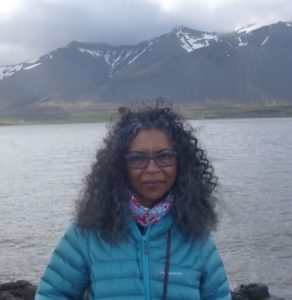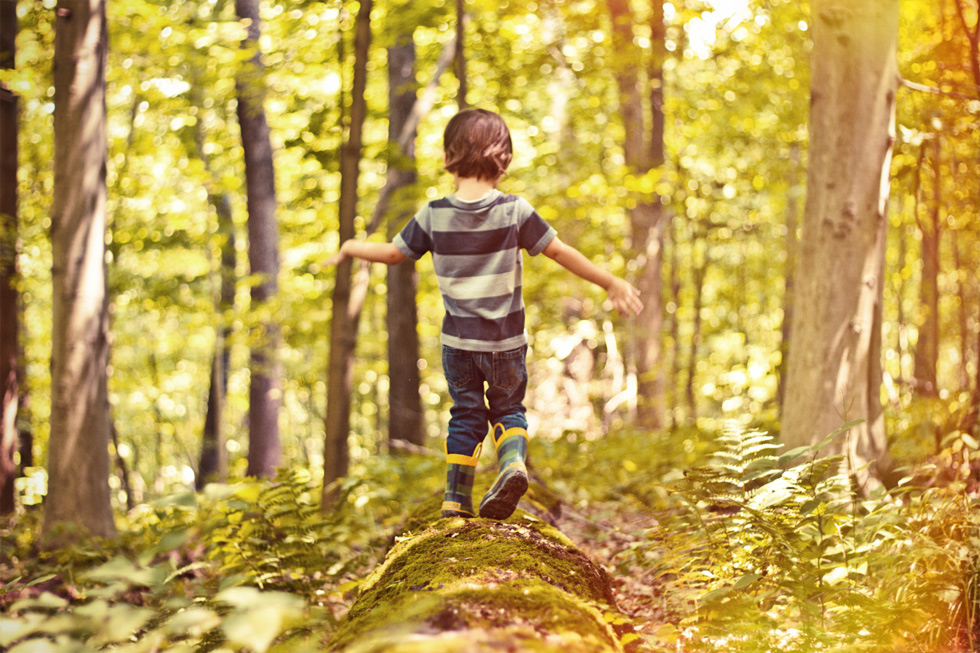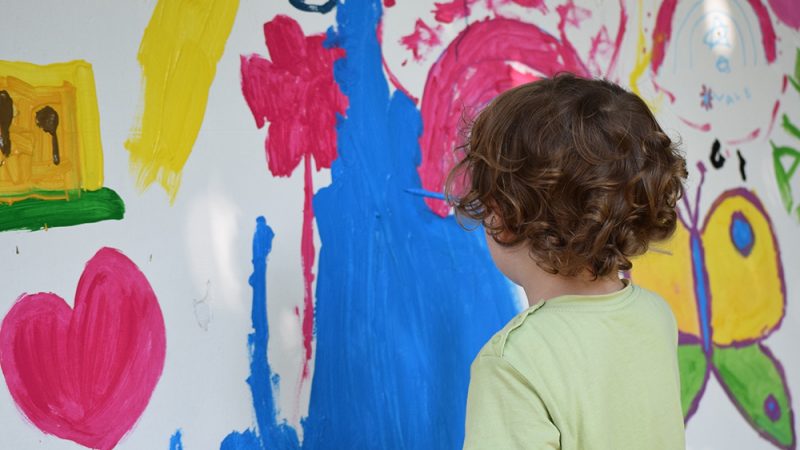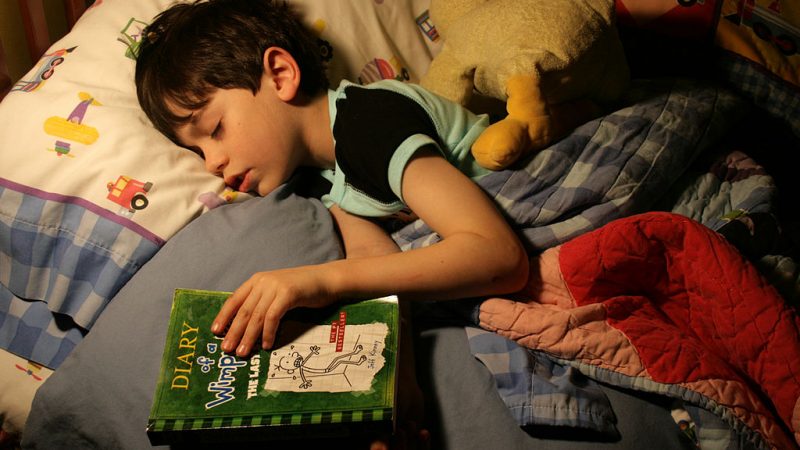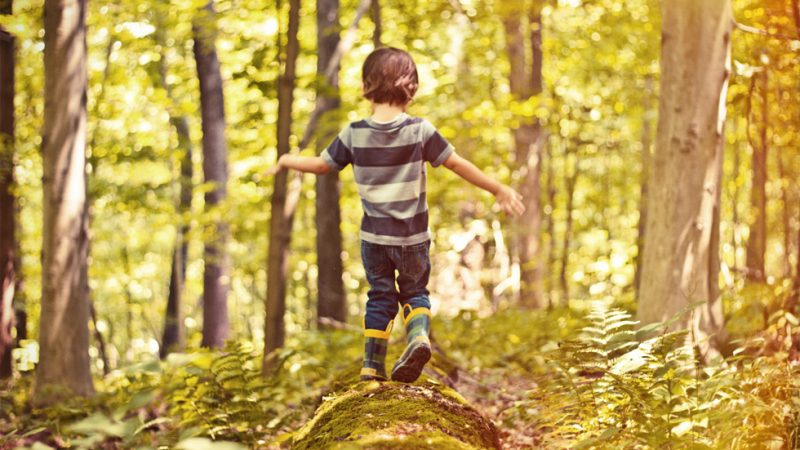
Rural childhoods – A Q&A with Philomena De Lima
Dr Philomena de Lima is the Director of the Centre for Remote and Rural Studies at University of the Highlands and Islands in Scotland.
Philomena studies the experiences of people living rurally and is particularly interested in social justice, exclusion, equality, ethnicity, race and culture, migration, community development and climate change and environment in a rural context.
Philomena came to chat to Parenting Science Gang about rural childhoods:
Photo: “On the path” Kevin Conor Keller / CC 2.0.
Q: How is rural life is changing across Europe. What themes did you find when you researched this?
Philomena: It is difficult to generalise about rural life, as it rural places are diverse in all sorts of ways but there are some general trends:
Rural economies are changing, whilst agriculture, forestry etc. are important, the service sector including tourism, public sector are also important sources of employment
Population changes, ageing, below replacement fertility rates in some areas, high levels of youth migration seem to be common problems.
However, rural areas are also more diverse, with migration both internal and international.
Q: Is there any evidence that the greater freedom to independently explore outside without the physical boundaries of busy roads, property divisions or ‘stranger danger’ encourages greater confidence in children?
Is there any research on the differing size of a child’s ‘world’, what they feel as home?
Philomena: An interesting question. There has been some research in the field of geography. This link may help:
PSG C: I’m interested in this too. I remember someone telling me years ago, that children today are usually allowed to range over a tiny fraction of the area that kids 40 years ago, were. That must impact on how they learn about the world.
Philomena: It is also about how they relate to the natural world, some years ago, a colleague and I tried to get some research funding to look at rural children and young people’s perspectives on environmental l issues but never got the funding.
PSG C: Ooo, we like interesting research questions that haven’t been investigated yet, here in PSG. What kind of research did you want to do, and why?
Philomena: My interest in this research was related to finding out if children brought up in a rural environment were more likely to be pro-environmental. At the time, I was particularly interested in children who had been brought up on small holdings /crofts. Also, were they more likely to engage in outdoor activities – climbing, etc. in later life?
There is also the notion of place based education. for children.
It would seem to be that there are many topics related to rural childhood that are not explored …
Q: What is place based education?
Philomena: It’s where learning activities are taken out of the class room… so for an example a geography session on rivers may take place by a local river which then could be used to explore another topic related to river life, plant life etc.
Q: What would you say are the biggest challenges for minority ethnic children growing up in rural and remote locations?
Philomena: The biggest challenge is having access to aspects of their culture such as specific festivals and issues related to belonging despite being born in a rural place.
But research shows that rural communities can be close and supportive, but they can also be places where individuals may feel ‘othered’, this can be based on their ethnicity, accent, may have mental health issues, may just be different. there has been quite a bit of research on issues related to poverty and being socially excluded
PSG A: This right here sums up why I’m unlikely to move to a rural area no matter how much I think its quality of life is better.
There’ll always be that fear and wondering about who doesn’t want you there, and if they might do something negative to communicate this.
Philomena: It is a challenge, it takes time to work through, I guess in some ways like any new place. I have found you can develop a network of friends but this may be not next door but a few miles away
It also depends on what you are looking for, rural is experienced differently
Q: What do you mean – rural being experienced differently?
PSG C: Philomena said something about rural communities being more diverse than you’d think. I live in rural southwest Scotland, and my neighbours are Egyptian/Scottish and Finnish. In general, there’s a lot of tourism here, which means lots of people from all over the UK move here. So, it’s pretty welcoming.
But I had a (white) friend whose family moved to a Hebridean island when she was in primary school, and she felt they were never accepted, because they hadn’t lived there for three generations.
I guess it depends on the rural community.
Philomena: Yes, and there is some literature on ‘incomers’ and a book by Nutall called ‘White settlers’ which addresses this issue
PSG A: I wonder if the first community referred to embrace people with much darker skin similarly, and how much worse it might be for someone with really dark skin in the second community. My hope of course is that skin colour or different culture of no consequence in this situation, but it doesn’t seem to be how things work in the world, generally.
Philomena: Interesting this issue of incomers is prevalent in many rural cultures across the world …and there is a hierarchy of acceptability …
PSG C: Where we live there are only two houses, so I hope we’d be equally welcoming regardless of skin colour… But going into town to go shopping, etc., it is generally pretty white, and I can imagine feeling conspicuous.
PSG A: it makes sense. I put it down to human nature. We want to preserve the familiar.
The challenge is how to deal with the burden of being on display all the time, consciously and unconsciously.
PSG C: Interestingly, a thousand years ago, Dumfries and Galloway was a much more diverse place – key shipping/trade routes along the coast, to Ireland, the Mediterranean, etc. There are bodies in a graveyard in Whithorn of people born and brought up in Africa and the Middle East.
I wonder if there’s a difference between tiny communities and medium sized ones? I mean, in a tiny hamlet (a few houses), people will get to know each other pretty well. So maybe skin colour would quickly be just one among many differences. Whereas in a small town, being the only black family is always going to be visible.
PSG A: How interesting. I wonder what happened to their descendants. So interesting….
I suppose the more different we all are, the less different we stand out.
Q: Are there any studies that link rural/ urban living as a child with outcomes later in life?
I always assume that there will be more opportunities in a busy, urban area and therefore those children will likely become more successful. But I also appreciate the many benefits of living in the country. I grew up in the city and am now bringing up my son in a more rural, village setting.
PSG E: I suppose it really depends on what you measure as ‘successful’.
PSG H: Absolutely, it’s a very subjective word. I’m interested in finding out about future success in many different forms. The typical academic, financial and social success. But also in terms of happiness and satisfaction.
Philomena: I have seen data from time to time that suggests that some of the rural secondary schools do well, the question of whether they do better or worse. Have not come cross studies, this does not mean to say they don’t exist.
PSG H: This is one of the aims of the new Curriculum for Excellence in Scotland- outdoor, interdisciplinary learning. However, it is proving to be near impossible logistically and financially.
Q: What are the recognised benefits to children growing up in rural communities, and what are the downsides?
My husband and I both grew up in remote areas of Asia/Pacific, but now live on a busy London high street with our toddler! We’re thinking about moving overseas but want to be sure that we’re moving for the right reasons…
Philomena: Are you planning to move to a rural area?
I wonder if this article may have something relevant
Age Identity and the Geographies of Children and Young People – Springer
PSG G: We are considering outside Chiang Mai… more rural than where we currently are. But I grew up in a northern island in Vanuatu
Philomena: Did you find there were benefits from growing up in a remote area?
PSG G: Yes, certainly! I feel it gave me a wider ‘world view’ than my peers in Australia, a simplified childhood with freedom and plenty of nature, and forced bonding with my sister and family amongst others. But I was curious if there were broader themes that applied on a wider scale. Perhaps the fact that we weren’t ‘from’ there was also a factor in my experience
Q: I’m interested in how we can replicate the benefits of rural childhood for children who are growing up in cities
I grew up in the country but now living in Belfast. I want my child to have as strong as possible relationship with nature that is possible given his so far urban up-bringing. I bring him to a farm on a weekly basis, escape to the beach once a week.
Any suggestions from your research?
Philomena: It is not research I have undertaken, however, I am aware or initiatives such as forest schools… but again not quite sure how much they involve urban children. I think we can romanticise life in rural areas. I have lived and we have brought up two sons in the Highlands… however, I find there is very little engagement with the rural environment even if children are brought up in the country.
Q: Are there any studies of the effects of rural children spending so much time in cars?
Philomena: Not particularly on children but there has been some research recently stating that because of the high usage of cars in rural areas they may be engaging in less physical activity such as walking compared to those living in towns and cities
PSG E: I definitely think it counts in my case, counterintuitive though it sounds.
PSG C: Me too. My phone comes with an app that counts my steps. If I go to a city for the weekend my step count goes way up.
Q: We live very rurally. I think my 4-year-old is having a whale of a time now, and has lots of freedom. But I worry that he’ll hate it when he’s a teenager. What does research say about rural childhoods and how they differ from urban/suburban childhoods?
Philomena: Interestingly enough, there is little or no research that I could find that compares the experiences of children in the contexts you mention.
Q: I wonder how the coming digital age will affect remote areas ?
Could it make it easier for families to live in remote areas (assuming their internet connection is decent) if we have more jobs that can be carried out online, in the future?
Philomena: Yes, the digital age and the knowledge has been seen as providing a great opportunity for better paid more skilled work, but I know that in many rural areas internet speeds are pretty poor, until such time as the internet is seen as an essential infrastructure there will continue to be problems.
Q: Does your research involve asking children what they think of their rural childhoods?
I lived on Orkney until I was 9 and when I tell people this they immediately exclaim what a wonderful place to be a child in. It is, I have lots of happy memories but I also remember wishing we lived on the mainland and nearer the rest of our family in a bigger town.
I now live in a small town in Fife and my 5-year-old, who has a lovely life here, says Edinburgh is his favourite place and he wants to live there.
I’m interested in children’s perspectives about their idyllic rural childhoods.
PSG D: Yes, I remember wishing I lived in the town (especially as a teenager) but at the same time I loved the freedom of cycling all day with my friends with our backpacks etc.
Philomena: It would be wonderful to have such research… there is a great deal of research from children perspectives but very little on the issues that you mention, and there should be more.
Related links:
The Centre for Remote and Rural Studies
For more on evidence-based parenting, check out our Q&As with the Experts.
